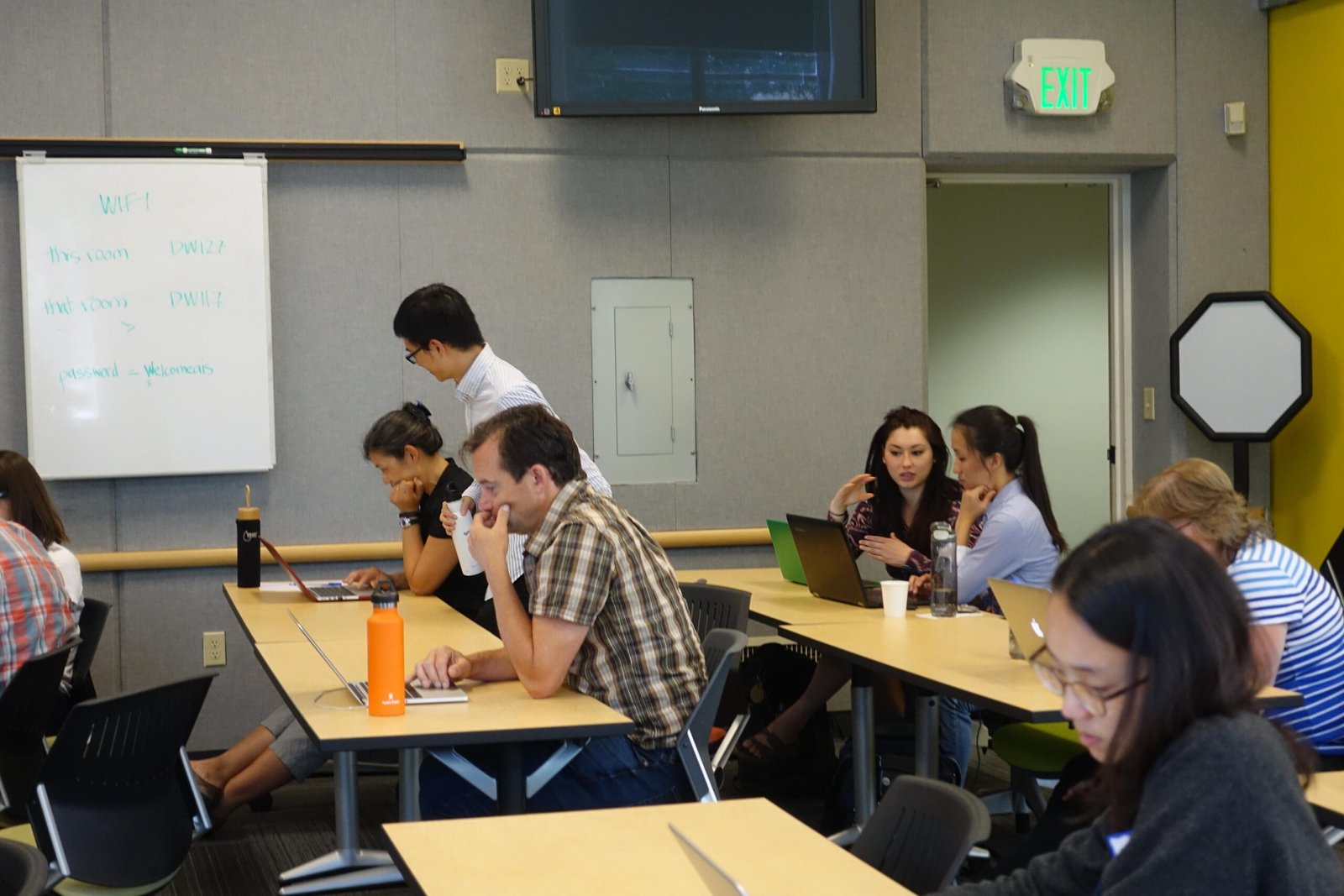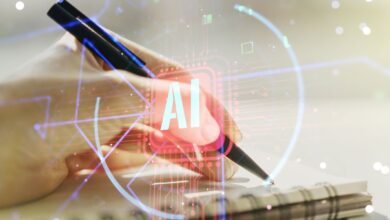
The artificial intelligence revolution is transforming industries at an unprecedented pace, creating a massive demand for skilled AI professionals across every sector. As organizations rush to integrate machine learning, natural language processing, and artificial intelligence into their operations, the need for qualified talent has reached critical levels. Whether you’re a complete beginner looking to enter the tech industry or an experienced professional seeking to upskill, AI workshops and bootcamps offer an accelerated pathway to career transformation.
AI bootcamps have emerged as the most practical and efficient way to gain hands-on experience with cutting-edge technologies without spending years in traditional degree programs. These intensive career development programs combine theoretical knowledge with real-world projects, mentorship from industry experts, and direct pathways to employment opportunities. From machine learning bootcamps to specialized AI workshops focusing on generative AI, computer vision, and deep learning, the landscape offers diverse options tailored to different career goals and experience levels.
The artificial intelligence field presents exceptional career prospects, with AI engineer salaries ranging from $95,000 to over $200,000 annually, depending on specialization and location. However, navigating the numerous AI training programs available can be overwhelming. This comprehensive guide examines the best AI workshops and bootcamps for career development in 2025, analyzing curriculum quality, instructor expertise, job placement rates, cost-effectiveness, and alumni outcomes. We’ll explore full-time immersive programs, part-time AI workshops for working professionals, online bootcamps, and university-affiliated courses to help you make an informed decision about your AI career journey.
AI Bootcamps and Workshops
What Are AI Bootcamps
AI bootcamps are intensive, structured training programs designed to teach practical artificial intelligence and machine learning skills in a compressed timeframe, typically ranging from 12 to 24 weeks. Unlike traditional computer science degrees that span four years, these bootcamps focus exclusively on industry-relevant skills and hands-on project experience. Students learn programming languages like Python and R, work with machine learning frameworks such as TensorFlow and PyTorch, and develop expertise in data analysis, neural networks, and AI algorithms.
The curriculum in AI bootcamps is carefully crafted to mirror real-world industry requirements, emphasizing practical application over theoretical concepts. Students typically complete multiple portfolio projects, including predictive modeling, computer vision applications, natural language processing systems, and recommender engines. Many programs also incorporate emerging technologies like generative AI, large language models, and MLOps (Machine Learning Operations) to ensure graduates are prepared for current market demands.
AI Workshops vs. Full Bootcamps
AI workshops represent shorter, more focused learning experiences that typically last from a few days to several weeks. These intensive sessions target specific skills or technologies, such as deep learning with neural networks, computer vision applications, or natural language processing techniques. Workshops are ideal for professionals who need targeted skill enhancement or want to explore specific areas of artificial intelligence before committing to longer programs.
Full bootcamps, conversely, provide comprehensive career development experiences that cover the entire AI and machine learning ecosystem. They include career services, mentorship, networking opportunities, and often guarantee job placement assistance. While workshops focus on skill acquisition, bootcamps emphasize career transformation and provide structured pathways from education to employment in the AI industry.
Key Components of Quality AI Programs
Excellence in AI education requires several critical components that distinguish top-tier programs from mediocre offerings. First-class AI bootcamps feature curricula developed in partnership with industry leaders, ensuring content remains current with rapidly evolving technology trends. The best programs maintain small student-to-instructor ratios, providing personalized attention and immediate feedback on complex technical concepts.
Hands-on project work forms the backbone of effective AI training, with students building real applications using industry-standard tools and datasets. Quality programs also emphasize soft skills development, including technical communication, project management, and collaborative problem-solving – skills essential for success in AI careers. Additionally, strong industry connections, guest lectures from practicing AI professionals, and active alumni networks significantly enhance the educational experience and career outcomes for graduates.
Top-Rated AI Bootcamps for 2025
Springboard AI/ML Career Track
Springboard’s AI and Machine Learning Career Track stands out as one of the most comprehensive online bootcamps available, offering a mentor-driven approach that ensures personalized career development. The program spans 6-9 months part-time, making it accessible for working professionals who want to transition into AI careers without leaving their current positions. Students work one-on-one with industry mentors throughout the program, receiving guidance on both technical skills and career strategy.
The curriculum covers essential machine learning concepts, including supervised and unsupervised learning, deep learning, computer vision, and natural language processing. Students complete real-world capstone projects that demonstrate their abilities to potential employers, with recent projects including recommendation systems for e-commerce platforms, sentiment analysis tools for social media monitoring, and predictive maintenance systems for manufacturing.
Springboard’s job guarantee program provides added confidence, promising tuition refunds if graduates don’t secure relevant employment within six months of completion. The program also includes comprehensive career services, including resume optimization, interview preparation, salary negotiation coaching, and direct introductions to hiring partners in the AI industry.
IBM Machine Learning Professional Certificate
IBM’s Machine Learning Professional Certificate has gained significant recognition in 2025 for its practical approach to AI education and strong industry credibility. This online program consists of multiple courses that can be completed in 4-6 months, depending on the student’s pace and prior experience. The curriculum emphasizes hands-on learning with IBM’s Watson platform and other industry-standard tools.
Students learn to build and deploy machine learning models using Python, scikit-learn, and TensorFlow, while also gaining experience with cloud-based ML platforms. The program covers regression, classification, clustering, and deep learning techniques, with special emphasis on practical application in business contexts. Projects include building recommendation engines, creating chatbots, and developing computer vision applications for real-world scenarios.
The certificate program’s strength lies in its integration with IBM’s extensive AI ecosystem, providing students with access to enterprise-grade tools and resources. Graduates often find opportunities within IBM’s partner network, which includes major corporations across finance, healthcare, retail, and technology sectors. The program also prepares students for IBM’s professional certifications, adding valuable credentials to their AI career profiles.
Fullstack Academy AI & Machine Learning Bootcamp
Fullstack Academy’s AI Workshops and Bootcamps offer both full-time and part-time options, catering to different student needs and schedules. The full-time program runs for 14 weeks, while the part-time version extends over 28 weeks, allowing working professionals to balance their studies with existing commitments. The curriculum combines theoretical foundations with intensive practical application, ensuring graduates understand both the science and engineering aspects of artificial intelligence.
Students learn Python programming, statistical analysis, machine learning algorithms, and deep learning techniques using industry-standard libraries and frameworks. The program includes specialized modules on generative AI, computer vision, and natural language processing, reflecting current industry trends and employer demands. Capstone projects allow students to specialize in areas of particular interest, with recent examples including fraud detection systems, medical image analysis tools, and automated trading algorithms.
Fullstack Academy’s career development services include dedicated career coaches, technical interview preparation, and access to an extensive hiring partner network. The program boasts strong job placement rates, with over 80% of graduates securing relevant positions within six months of completion. Alumni have been hired by companies including Google, Microsoft, Spotify, and numerous startups in the AI space.
UC Berkeley Extension AI Bootcamp

The UC Berkeley Extension AI Bootcamp leverages the university’s renowned reputation and faculty expertise to deliver a rigorous artificial intelligence education program. This 24-week part-time bootcamp is designed for working professionals and includes both online and in-person components, providing flexibility while maintaining high academic standards.
The curriculum is developed and regularly updated by UC Berkeley faculty, ensuring content reflects the latest research and industry developments. Students explore machine learning fundamentals, deep learning architectures, computer vision applications, and natural language processing systems. The program also includes modules on AI ethics, bias detection, and responsible AI development – increasingly important topics in the current regulatory environment.
What sets this program apart is its academic rigor combined with practical application. Students complete research-quality projects that could potentially lead to publication or patent applications. The program also provides access to UC Berkeley’s extensive alumni network and research facilities, offering unique networking opportunities and potential pathways to advanced degree programs for those interested in further education.
Specialized AI Workshop Programs
Google Cloud AI Platform Workshops
Google Cloud’s AI Platform Workshops represent some of the most technically advanced and industry-relevant training programs available for artificial intelligence professionals. These intensive workshops range from one-day introductory sessions to multi-week certification programs, covering the entire spectrum of Google’s AI and machine learning ecosystem. The AI Workshops and Bootcamps are designed for different skill levels, from beginners seeking foundational knowledge to experienced practitioners looking to master advanced techniques.
The curriculum includes hands-on experience with Google’s cutting-edge AI tools, including AutoML, Vertex AI, and TensorFlow Extended (TFX). Participants learn to build, train, and deploy machine learning models at scale using Google’s cloud infrastructure. Advanced workshops cover topics like MLOps, model monitoring, and production deployment strategies essential for enterprise AI applications.
Google’s workshops are particularly valuable for their focus on real-world scalability and production environments. Participants work with datasets and scenarios that mirror actual industry challenges, learning not just how to build models but how to maintain and improve them in production settings. The workshops also provide insights into Google’s internal best practices for AI development, offering participants knowledge that would be difficult to acquire elsewhere.
Microsoft Azure AI Fundamentals
Microsoft’s Azure AI Fundamentals workshops provide comprehensive training on Microsoft’s artificial intelligence and cognitive services platform. These programs are structured as progressive learning paths, allowing participants to start with basic concepts and advance to specialized areas like computer vision, natural language processing, and conversational AI. The workshops combine theoretical knowledge with hands-on labs using Azure’s cloud-based AI services.
Participants learn to integrate pre-built AI services into applications, customize models for specific business needs, and understand the ethical implications of AI deployment. The curriculum covers Azure Cognitive Services, Bot Framework, Machine Learning Studio, and Azure Databricks, providing a complete overview of Microsoft’s AI ecosystem. Advanced workshops delve into custom model development using Azure Machine Learning and deployment strategies for enterprise environments.
The program’s strength lies in its enterprise focus and integration capabilities. Participants learn how to implement AI solutions within existing Microsoft technology stacks, making the training particularly valuable for professionals working in Microsoft-centric environments. The workshops also prepare participants for Microsoft’s official AI certifications, adding valuable credentials to their professional profiles.
NVIDIA Deep Learning Institute
NVIDIA’s Deep Learning Institute offers some of the most technically sophisticated AI Workshops and Bootcamps available, focusing specifically on deep learning and GPU-accelerated computing. These intensive programs range from single-day workshops to week-long bootcamps, covering cutting-edge topics like transformer architectures, computer vision, autonomous systems, and high-performance computing for AI applications.
The curriculum leverages NVIDIA’s hardware and software ecosystem, including CUDA programming, cuDNN libraries, and specialized frameworks like RAPIDS for GPU-accelerated data science. Participants work with state-of-the-art hardware configurations and learn optimization techniques that can dramatically improve model training times and performance. Advanced workshops cover topics like distributed training, model optimization, and deployment strategies for edge computing environments.
What makes NVIDIA’s program unique is its focus on the intersection of hardware and software in AI development. Participants gain deep insight into how to maximize computational efficiency, optimize memory usage, and leverage parallel processing for machine learning workloads. This knowledge is particularly valuable for professionals working on large-scale AI projects or developing applications with strict performance requirements.
Online vs. In-Person AI Learning
Advantages of Online AI Bootcamps
Online AI bootcamps have revolutionized accessibility to artificial intelligence education, removing geographical barriers and providing flexible scheduling options for working professionals. The digital format allows students from around the world to access top-tier instructors and curricula that might otherwise be unavailable in their local markets. Online programs typically offer recorded lectures, interactive coding environments, and virtual lab sessions that can be accessed 24/7, accommodating different learning styles and time zones.
Cost-effectiveness represents another significant advantage of online AI training. Without facility overhead and travel requirements, online bootcamps often cost 30-50% less than equivalent in-person programs while maintaining similar quality standards. Students save additional money on relocation, accommodation, and commuting expenses, making AI education more accessible to a broader demographic.
The digital learning environment also provides unique advantages for technical skill development. Online platforms often include integrated development environments, cloud-based computing resources, and collaborative tools that mirror modern remote work environments. Students become proficient with digital collaboration tools, version control systems, and virtual project management platforms – skills that are increasingly valuable in the distributed AI industry.
Benefits of In-Person AI Training
In-person AI bootcamps offer irreplaceable benefits that stem from direct human interaction and collaborative learning environments. Face-to-face instruction allows for immediate clarification of complex concepts, real-time problem-solving assistance, and spontaneous learning opportunities that emerge from group discussions. The structured environment of physical classrooms also helps maintain focus and motivation, particularly important when tackling challenging machine learning concepts.
Networking opportunities in in-person programs tend to be more substantial and lasting. Students form study groups, work collaboratively on projects, and build professional relationships that often continue throughout their careers. Instructors and guest speakers are more accessible for informal conversations and mentorship opportunities that can significantly impact career development trajectories.
The laboratory and hardware access provided by in-person programs can be particularly valuable for AI education. Students often have access to high-end GPU clusters, specialized hardware for computer vision and robotics projects, and research-grade equipment that would be prohibitively expensive for individual students to acquire. This hands-on experience with professional-grade tools and infrastructure provides practical skills that are highly valued by employers.
Hybrid Learning Models
Hybrid AI Workshops and Bootcamps combine the best aspects of online and in-person learning, offering flexible scheduling with periodic in-person intensive sessions. These programs typically feature online lectures and individual work supplemented by weekend workshops, intensive project sprints, or capstone presentations. This model provides the convenience of online learning while maintaining crucial face-to-face interaction opportunities.
The hybrid approach is particularly effective for career development in artificial intelligence, as it mirrors the increasingly distributed nature of modern AI work environments. Students become comfortable with remote collaboration tools while still developing in-person communication and teamwork skills. Many hybrid programs also include optional in-person components, allowing students to choose their level of physical participation based on personal preferences and circumstances.
Project-based learning in hybrid environments often produces superior outcomes, as students can leverage online resources for independent research and development while using in-person sessions for collaborative problem-solving and peer review. This approach develops both technical skills and professional competencies that are essential for success in AI careers.
Career Outcomes and Job Market Analysis
AI Job Market Trends in 2025
The artificial intelligence job market in 2025 continues to demonstrate explosive growth across all industry sectors, with demand far outpacing the supply of qualified professionals. Recent industry analyses indicate that AI-related positions have increased by over 300% in the past five years, with no signs of slowing despite broader economic uncertainties. Machine learning engineers, data scientists, and AI specialists consistently rank among the highest-paid and most in-demand roles in the technology sector.
Enterprise adoption of artificial intelligence has accelerated significantly, driven by competitive pressures and improved AI tooling accessibility. Companies across healthcare, finance, manufacturing, retail, and transportation are actively seeking AI professionals to implement automation solutions, optimize operations, and develop new product capabilities. This broad industry adoption has created diverse career paths beyond traditional technology companies, offering opportunities in consulting, research, product management, and technical sales.
Emerging specializations within the AI field include MLOps engineers, AI ethics specialists, conversational AI developers, and computer vision engineers. These niche roles often command premium salaries and offer exceptional career growth potential. The increasing regulatory focus on AI governance has also created new opportunities for professionals who can bridge technical and compliance requirements, making interdisciplinary skills particularly valuable.
Salary Expectations for AI Professionals
AI career compensation varies significantly based on specialization, experience level, geographic location, and company size, but it consistently ranks among the highest in the technology industry. Entry-level positions for bootcamp graduates typically start between $80,000-$120,000 annually, with rapid advancement potential as skills and experience develop. Mid-level AI engineers with 3-5 years of experience commonly earn $130,000-$200,000, while senior specialists and architects can command $250,000+ in major technology markets.
Geographic location significantly impacts AI salary expectations, with technology hubs like San Francisco, Seattle, New York, and Boston offering the highest compensation packages. However, the growing acceptance of remote work has somewhat equalized opportunities, allowing professionals in lower-cost areas to access high-paying positions while maintaining better work-life balance and lower living expenses.
Specialization within artificial intelligence also affects earning potential. Machine learning engineers focusing on deep learning and neural networks typically earn 15-25% more than generalist data scientists. Computer vision specialists, natural language processing experts, and robotics engineers command premium salaries due to the specialized knowledge required. Additionally, professionals with strong business acumen and communication skills often transition into technical leadership roles with significant equity compensation potential.
Job Placement Success Stories
AI Workshops and Bootcamps graduates have achieved remarkable career transformation success across diverse industry sectors, with many transitioning from non-technical backgrounds to high-paying AI roles within months of program completion. Recent graduate success stories include career changers from education, finance, healthcare, and retail who have secured positions at major technology companies, consulting firms, and innovative startups.
One notable success pattern involves professionals leveraging domain expertise from previous careers combined with newly acquired AI skills. Healthcare professionals have become medical AI specialists, finance experts have developed algorithmic trading systems, and marketing professionals have created predictive analytics platforms. This combination of technical skills with industry knowledge often proves more valuable than purely technical backgrounds.
The networking and mentorship components of quality AI Workshops and Bootcamps have proven crucial for job placement success. Many graduates report that connections made through their programs led directly to employment opportunities, emphasizing the importance of choosing programs with strong industry relationships and active alumni networks. Career services, including resume optimization, interview preparation, and salary negotiation support, have also played vital roles in helping graduates secure competitive positions and compensation packages.
Choosing the Right AI Program

Assessing Your Current Skill Level
Successfully selecting an appropriate AI workshop and Bootcamps begins with an honest assessment of your current technical capabilities and career goals. Individuals with strong mathematical backgrounds, programming experience, or data analysis skills may be well-suited for advanced machine learning programs, while complete beginners should focus on foundational bootcamps that start with basic programming and statistical concepts.
Technical prerequisite evaluation should include programming proficiency (particularly Python), mathematical knowledge (statistics, linear algebra, calculus), and familiarity with data manipulation tools. Many quality AI programs provide pre-work or preparatory courses to help students develop necessary foundational skills, but having some background knowledge significantly improves learning outcomes and program satisfaction.
Career transition goals also influence program selection. Professionals seeking to add AI skills to existing roles might benefit from shorter, specialized workshops, while those planning complete career changes typically require comprehensive AI Workshops and Bootcamps with career services and job placement assistance. Your preferred learning pace, schedule flexibility, and financial constraints help narrow program options to those most likely to deliver desired outcomes.
Program Curriculum Evaluation
Effective AI curriculum evaluation requires examining both breadth and depth of course content to ensure alignment with industry requirements and personal career objectives. Quality programs should cover fundamental machine learning concepts, practical programming skills, and real-world application development. Advanced bootcamps should also include emerging topics like generative AI, MLOps, and AI ethics to prepare graduates for current market demands.
Hands-on project components deserve particular scrutiny, as practical experience building AI applications proves more valuable to employers than theoretical knowledge alone. Look for programs featuring portfolio development, capstone projects, and opportunities to work with real datasets and industry scenarios. The quality and relevance of these projects often determine graduate success in job placement and early career advancement.
Instructor qualifications and industry connections significantly impact program quality and networking opportunities. Seek AI Workshops and Bootcamps with faculty who have practical industry experience, current professional involvement, and strong connections to hiring organizations. Guest lectures, industry partnerships, and mentorship programs provide additional indicators of program quality and graduate support systems.
Cost-Benefit Analysis
AI Workshops and Bootcamps costs vary dramatically, ranging from free online courses to premium programs exceeding $20,000, making a thorough cost-benefit analysis essential for informed decision-making. Direct program costs should be evaluated against potential salary increases, career advancement opportunities, and long-term earning potential. Most AI professionals recover educational investments within 1-2 years of graduation, making even expensive programs financially justifiable.
Hidden costs, including living expenses during full-time programs, lost income from career breaks, and technology requirements, should be factored into total investment calculations. Online programs and part-time options often provide better financial flexibility for working professionals, though they may require longer completion timeframes and greater self-discipline.
Financing options, including income share agreements, employer sponsorship, and educational loans, can make premium AI education more accessible. Many AI Workshops and Bootcamps offer flexible payment plans, scholarships, and job guarantee programs that reduce financial risk. However, carefully review terms and conditions, as some financing arrangements include significant long-term commitments that may limit future career flexibility.
More Read: How to Start a Career in AI and Machine Learning: A Beginner’s Guide
Conclusion
The landscape of AI workshops and bootcamps in 2025 offers unprecedented opportunities for career development and professional transformation in the rapidly expanding artificial intelligence sector. From intensive full-time bootcamps that provide comprehensive machine learning education to specialized workshops focusing on cutting-edge technologies, there are quality programs suited to every skill level, schedule, and budget.
The key to success lies in carefully evaluating your current capabilities, career goals, and learning preferences to select programs that align with your objectives. Whether you choose established providers like Springboard and Fullstack Academy, university-affiliated programs like UC Berkeley Extension, or specialized workshops from industry leaders like Google and NVIDIA,
the investment in AI education consistently delivers exceptional returns through higher salaries, expanded career opportunities, and the satisfaction of working with transformative technologies. As the AI industry continues its explosive growth, professionals who invest in quality training programs today will be well-positioned to capitalize on the countless opportunities that await in this dynamic and rewarding field.











